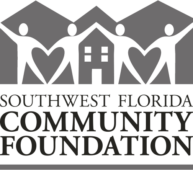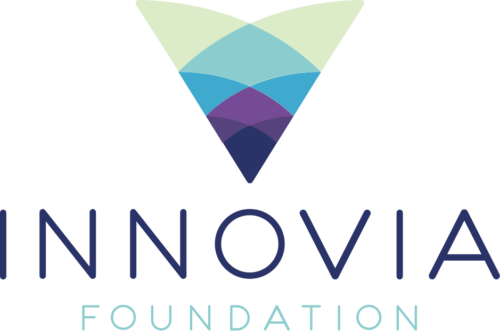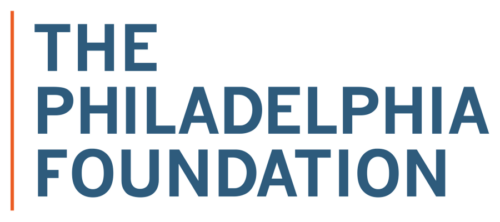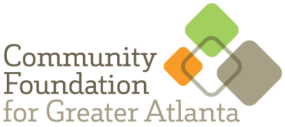
Why it matters
The U.S. Constitution was established with the belief in a “more perfect union,” asserting that this nation is made stronger by its people who have a responsibility to help it live up to our highest ideals. An active, informed citizenry is crucial to a healthy democracy, which may be measured by specific indicators such as trust in other people and major institutions, giving and volunteering, staying informed, participating in politics, and coming together to define and address common problems.
Unfortunately, a majority of Americans (59%) are not satisfied with the way democracy is working in the United States. A lack of trust in major institutions, including the news media, combined with a steady decline in local journalism and an increase in misinformation, is affecting Americans’ ability to stay informed about issues impacting their lives:
- Only 27% of Americans agree with the statement that “elected officials care about ordinary citizens.”1
- Half of all Americans have “hardly any confidence in the press.”2
- More than a quarter of the country’s newspapers have vanished over the past 15 years, along with half of all local journalist jobs.3
Another important facet of community voice is involving residents in decision-making that impacts their lives. Research shows that doing this builds more trust with the public and improves outcomes. For instance, a 2011 study of state transportation departments found that increased community voice led to improved quality of service in terms of effectiveness and efficiency.
Amplifying community voice matters to community foundations because they exist to serve their communities. As local leaders and connectors, community foundations must ensure there is active, meaningful participation by the people whose lives are most affected by the policies, systems and structures in the communities they serve. There are other elements of the American democracy: the right to vote, fair and free elections, a decennial census that counts every person, in which community foundations can play a role.
Webinar: Amplifying Community Voice
What we’re finding
Community foundations are convening community conversations, elevating resident voice and power, investing in local journalism and fueling participation in democracy.
Convening Community Conversations
The ability to bring people across the community together to learn about issues and share perspectives is one of the core functions of a community foundation. When we asked community foundation leaders about their plans for future staff allocation, it was clear that community foundations plan to continue serving the role as community convener. Seventy-six percent of survey respondents indicated they intend to increase their staff capacity to hold convenings around issues over the next two to three years.
Change in staff allocation by activity over the next 2 or 3 years
The importance of convening was reiterated several times in our survey and interviews. Dick Ober, President & CEO of the New Hampshire Charitable Foundation, noted that with the decline in civic discourse and public trust, the role of the community foundation to serve as a place of commons may be more important than ever. However, he also acknowledged the tension community foundations can face between playing the role of convener and being an advocate for equity, justice, democracy, climate solutions and other existential challenges.
With the decline in civic discourse and public trust, is our role as a place of commons more important than ever? Can we be better weavers?
Bridget Wilkinson, Executive Director of the One Valley Community Foundation (Bozeman, MT) named the “ability to convene community around issues to create solutions to challenges” as the most important local opportunity for community foundations. Thomas Kelly, VP of Evaluation and Impact at the Hawai’i Community Foundation also highlighted the Foundation’s greater engagement in convening. Heather Larkin, President & CEO of the Arkansas Community Foundation, named civic health, which includes civic discourse, civic education and civic engagement, as its top priority.
Community foundations convene community conversations in a variety of ways, often partnering with other organizations to find a welcoming space for gathering. The Columbus Foundation hosts The Big Table, an annual day of conversation and community building across the central Ohio region. Several community foundations—from the Blue Grass Community Foundation in Kentucky, to the Philadelphia Foundation in Pennsylvania and the Community Foundation for Palm Beach and Martin Counties in Florida—have hosted On the Table, initiated by The Chicago Community Trust in 2014. An investment in On The Table by the Knight Foundation has helped bring together thousands of people in communities across the country to meet and discuss difficult issues face-to-face, typically over a shared meal.
User-Submitted Content
Community Foundation of Broward
The Foundation’s new Art of Community grant opportunity was created to support “art projects for social change.” Supported projects will help build community engagement and create dialogue and expression for social justice issues in the community. They will also help residents address social justice challenges and build relationships with each other.
Visit website >Other community foundations have taken a leadership role in creating new spaces in which the community can come together. The Foundation for the Carolinas is housed in the Luski-Gorelick Center for Philanthropy, which offers free convening space to nonprofits and is part of a soon-to-be-unveiled civic campus that will serve as a regional hub for civic engagement and philanthropy. And creating space to convene is not just limited to indoor facilities: the Community Foundation of Greater Greensboro was a leader in the development of Center City Park in Greensboro and is a major funder of new public arts projects enabling residents to preserve and expand their sense of community.
Promising Illustrations

The Minneapolis Foundation
Minneapolis convenes community conversations through its award-winning podcast and live event series, Conversations with Chanda. This series unpacks complex topics by bringing in real-life perspectives on a variety of issues—including the power structures that surround wealth and the importance of criminal justice reform—and seeks to spark actions for the community’s grittiest, most vexing problems.
Visit Their Website
Southwest Florida Community Foundation
In 2018, Southwest Florida launched a new “Collaboratory” in the former downtown Fort Myers train depot. In a quest to live up to the true meaning of that name, the Foundation has declared that: “Collaboratory will coordinate the solving of every major social problem in southwest Florida by the year 2038,” and is now in the process of building a massive coordinating entity to help achieve this audacious goal.
Visit Their WebsiteElevating Resident Voice & Power
Community foundations are recognizing the need to ensure that residents, particularly those who have previously been excluded from local decisionmaking, should help inform and lead local action, as this often results in more effective and sustainable solutions. However, this skill is an emergent one—in fact, only 18% of survey respondents said they had an “excellent” relationship with emerging community leaders, suggesting a need for community foundations to focus increasingly on elevating the voices of their residents, including younger voices.
Percentage of respondents rating their relationship with these local actors as “excellent”
One example of community foundations engaging emerging leaders comes from the Parkersburg Area Community Foundation in West Virginia, which is conducting “next generation engagement” through a Civic Leaders Fellowship Program. Others, including the Oregon Community Foundation, create leadership councils made up of volunteers who provide personal, in-depth knowledge of community needs. Another method for engagement is through storytelling, like the Central Indiana Community Foundation’s Your Story. Our Community initiative which features over a hundred snapshots of community members and their stories.
Community foundations are intending to do more resident engagement over the next two to three years. Sixty-two percent of survey respondents said they plan to increase their staff allocation, and several commented on the importance of hearing directly from the community. The Ann Arbor Area Community Foundation calls community voice “integral” to its work, learning about community aspirations and needs in part by conducting community focus groups. The McPherson County Community Foundation in Kansas is working closely with local residents to define areas most needed to be addressed, such as mental health.
If you want to convene and have effective conversations, as well as community ownership, you need to include various voices and perspectives.
Ivye Allen, President of the Foundation for the Mid South, shares that her foundation strives to have more than one voice at the table representing a particular sector, community or issue, not just one representative for that constituency whose views may not reflect the positions of all.
Promising Illustrations

Innovia Foundation
Innovia has established local leadership councils in Eastern Washington and North Idaho to advise its work, in recognition that it serves a diverse region across urban, suburban and rural demographics. Leadership council members are trusted local leaders who are best equipped to diagnose and solve community problems. Last year, Innovia staff spent 205 workdays outside Spokane County, racking up more than 16,500 miles, to strengthen engagement in local communities.
Visit Their Website
East Bay Community Foundation
East Bay, named 2019’s “Boldest Community Foundation” by Inside Philanthropy, is working to build power among low-income communities and people of color by supporting community organizing, social movements and advocacy. In 2019, East Bay funded 18 social justice organizations, which it calls its core partners in Just East Bay.
Visit Their WebsiteInvesting in Local Journalism
Community foundations are also helping to amplify community voice by supporting local journalism in creative ways. This work builds on wider national philanthropic efforts, including the Knight Foundation’s $300M commitment to support local journalism announced in 2019.
For example, the Community Foundation for Greater Buffalo was a founding supporter of Investigative Post, the only news organization in Western New York dedicated to fact-based, nonprofit, watchdog journalism. The Community Foundation for Greater New Haven is funding the community-focused New Haven Independent. The Denver Foundation and the Wichita Community Foundation are among others who are funding solutions-based journalism.
User-Submitted Content
Community Foundation of St. Clair County
The Foundation saw an opportunity through its existing partnership with a local online publication to address a lack of representation of diverse voices in the media. With the support of two DAFs, the Foundation is funding a new position for a freelance writer who will cover transformative projects, social justice, neighborhoods and more from the Thumb region’s communities of color.
Visit website >Witchita Community Foundation
The Wichita Community Foundation partnered with Solutions Journalism Network to launch the Wichita Journalism Collaborative. In this initiative, ten media groups work to collaborate, facilitate audience engagement initiatives and push the boundaries of traditional delivery platforms. Since launching, partners have published in-depth stories covering COVID-19 and mental health in Wichita.
Visit website >Community foundations also invest in community-driven journalism to help highlight specific community issues. In Colorado, the Community Foundation Boulder County supports efforts to inform and monitor equity issues in local news coverage. In California, the Humboldt Area Foundation recently launched a new Community Voices Coalition that will generate “truthful, courageous and equitable stories covering vulnerable and traditionally underrepresented communities affected by the coronavirus,” and the Central Valley Community Foundation has raised over $1M for local impact journalism projects through its Impact Media and Measurement Fund. The fund supports dedicated reporters at the local newspaper covering education, land use, housing and water issues in the region.
Promising Illustrations

The Philadelphia Foundation
Philadelphia partnered to create the Lenfest Institute for Journalism to advance sustainable and quality local journalism in the digital age. The Institute advances high-impact journalism, news technology and innovation, newsroom and audience diversity, community listening projects, and multi-cultural news media across the country.
Visit Their Website
Seattle Foundation
Seattle partnered with the Seattle Times to create a new community-focused investigative journalism fund in 2019 to hold power accountable and drive change. This effort seeks community funders and personal champions of the free press to protect and expand the ambitious, rigorously reported work that is critical to a healthy democracy.
Visit Their WebsiteFueling Participation in Democracy
Our research shows that community foundations are helping to bolster key democratic structures and processes that support non-partisan efforts to promote greater political participation. Many are noting an uptick in political engagement. Fifty-eight percent of survey respondents agreed with the statement that there is a greater number and diversity of politically active people in their communities, and 64% agreed with the statement that young people are more involved in civic affairs.
Percent of survey respondents agreeing with each of the following statements
Community foundations are funding voter registration initiatives from coast to coast. In Connecticut, both the Hartford Foundation for Public Giving and Fairfield County’s Community Foundation have launched Get Out The Vote (GOTV) initiatives, intended to reach voters who have been historically disenfranchised. Fairfield also created a Civic Education Grants Program to support organizations engaging in efforts to improve civic knowledge and information for such voters. In California, the Latino Community Foundation created a non-partisan Latino Voter Guide to help educate and mobilize the 7.9 million eligible Latino voters in the state.
Community foundations are also supporting the completion of the 2020 Census. The Arizona Community Foundation is encouraging residents to participate by emphasizing that all Arizonans across the political divide deserve their fair share of federal resources. The Pittsburgh Foundation is partnering with the county’s Complete Count Committee and the Census 2020 Philanthropic Fund to implement a mini-grants program to support census-related activities. The Silicon Valley Community Foundation is promoting participation in the 2020 Census through its Get Out The Count! Initiative.
Promising Illustrations

Community Foundation for Greater Atlanta
Atlanta hosts and co-manages the Vote Your Voice Initiative which supports nonprofit organizations in five Southern states (AL, FL, GA, LA and MS) that conduct voter registration and mobilization among voters of color, particularly those facing significant barriers to participation.
Visit Their Website
Albuquerque Community Foundation
Albuquerque helped form a coalition of funders called New Mexico Counts 2020 to help ensure that all New Mexicans are counted in the 2020 Census, especially in the communities most difficult to reach and count. Together, they advocated for a $3.5M state investment in Census 2020 outreach, with dedicated funding for outreach to Indigenous communities.
Visit Their WebsiteWhat you can do
CFLeads is here to help your community foundation dive deeper into these three key action areas. We offer a variety of unique learning opportunities, from light-touch webinars to multi-day peer learning and intensive year-long networks, that have been shown to advance community leadership practice in community foundations of all sizes from all across the country. We are now adapting these learning opportunities and designing new programs to help you insist on equity, amplify community voice and influence policy and systems—and ultimately build more inclusive and widely prosperous communities.
Key Organizations
- CUNY Center for Community Media: Serves news organizations that provide essential local coverage for populations whose voices and issues are underrepresented in mainstream media
- Creative Reaction Labs: Equity-centered community design
- Everyday Democracy: Brings diverse groups of people together, helping them structure and facilitate community dialogue and training them to use a racial equity lens to understand longstanding problems and possible solutions
- Fund for Shared Insight: A national funder collaborative working to improve philanthropy by elevating the voices of those least heard
- Funders Committee for Civic Participation (FCCP): An innovative and thought-provoking network that shares an underlying conviction that all people deserve a voice in our democratic process
- Maynard Institute, Northwestern School of Journalism: Works to ensure that all segments of our diverse society are fairly, accurately and credibly portrayed
- Media Funders Group: A membership organization that advances the work of a broad range of funders committed to effective use and support of media in the public interest
- Neighborhood Funders Group: A network of funders who believe in the power of people to transform communities
- Philanthropy for Active Civic Engagement (PACE): A philanthropic laboratory for funders seeking to maximize their impact on democracy and civic life in America
- Report for America: A national service program that places emerging journalists into local newsrooms across the country to report on under-covered issues
- Solutions Journalism: Train and connect journalists to cover how people are responding to problems
Key Resources
- Candid
- Casey Center for the Study of Social Policy: The Making Connections Experiences with Resident Engagement and Leadership
- CFLeads and Aspen Institute: Resident Engagement Guidebook
- Grantmakers for Effective Organizations (GEO): Do Nothing About Me Without Me: An Action Guide for Engaging Stakeholders
- Media Impact Funders: Journalism and Media Grantmaking: 5 Things You Need To Know, 5 Ways To Get Started
- National Civic Review: Philanthropy and Resident Engagement: The Promise for Democracy
- National Committee on Responsive Philanthropy (NCRP): PowerMoves: Building, Sharing, and Wielding Power
- PolicyLink/Kirwan Institute: Community Engagement for Sustainable Communities
- University of Pennsylvania – The Center for High Impact Philanthropy: We The People: A Philanthropic Guide to Strengthening Democracy
Questions to Consider Along Your Journey
If you are just getting started…
- Do staff and board understand the value of broad civic discourse in a democracy and the need for accurate and relevant local news to undergird those conversations?
- Do your staff and board members know how to define resident engagement and understand the importance of resident perspectives on the community’s challenges and possibilities?
- Do you have staff and/or board members who are trusted among marginalized populations and willing to build relationships between those populations and the foundation?
If you are further along the path…
- Are you holding listening sessions to better understand the issues that are most important to residents who have not been traditionally heard?
- Do you have a process for incorporating resident aspirations and ideas into your strategic direction and program development?
- Do your grant guidelines require or provide incentives for nonprofits to seek out the insights and feedback of program participants?
- Are you taking into consideration non-traditional ways of supporting small community groups, such as serving as a fiscal sponsor?
- Do you fund or host a leadership development program for residents?
- Are you providing grants that could build the capacity of local newsrooms with tools, technology, training, and/or additional staff?
- Are you supporting and participating in nonpartisan efforts to strengthen democratic systems (e.g. supporting an accurate census)?
If your organization is ready to break barriers…
- Have you created regular feedback loops with residents for your program initiatives?
- Are residents who have not typically been heard involved in grantmaking and/or other foundation decisions?
- Do you have a process to support community-led collaborations that include residents?
- Do you work to make resident voice an integral part of all community decision-making processes and encourage shared ownership of the process?
- Do you provide resources for community organizing tools that amplify resident voice and power?
- If your community doesn’t have a trusted source for local news, are you willing to identify the resources (financial and relationships) to provide a long-term investment in the development and distribution of local news?